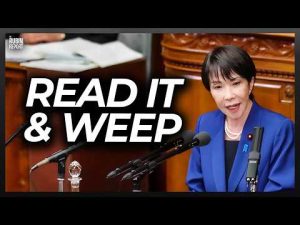Miami’s political scene is boiling over after a city commission vote this summer tried to postpone the November 2025 municipal elections until 2026, a move critics called an obvious power grab. A circuit judge swiftly ruled that postponement unlawful and ordered the election to proceed, exposing the political theater for what it is — elected officials trying to extend their own terms without voter consent. Hardworking Miamians smelled the overreach immediately and pushed back, and the courts did what the commissioners would not: protect the people’s right to choose their leaders.
Mayor Francis Suarez leaves office after two terms with a mixed but consequential record that Republicans can be proud of — he steered Miami through economic growth, put a priority on business-friendly policies, and emphasized public safety in a way that attracted investment. Suarez was re-elected overwhelmingly in 2021 and built a brand for Miami as a place where entrepreneurs can flourish instead of getting strangled by woke regulations. His tenure also highlighted the limits of municipal power under Miami’s city-manager system, but the city’s business-friendly reputation is real and worth defending.
That said, Suarez’s final stretch in office was marred by relentless ethics inquiries and the fallout from a short-lived presidential bid, issues the corporate media gleefully amplified while ignoring the city’s tangible wins. Federal and state probes and local complaints became the drumbeat in left-leaning outlets, turning a complex situation into a political feeding frenzy that discourages any would-be reformer. Conservatives should be skeptical of media narratives that rush to convict public servants before facts are fully laid out.
Adding a dramatic twist, long-time Miami politician Xavier Suarez — Francis’s father and the city’s first Cuban-born mayor decades ago — announced a run for mayor in the wake of the court decision, proving Miami politics never lacks for theater. His comeback bid underscores how local politics often returns to seasoned personalities, but it also raises real questions about generational change and whether Miami voters want more of the same. The Suarez name carries weight, but name recognition doesn’t automatically translate into sound, future-focused governance.
National Democrats are salivating at the prospect of flipping Miami blue, pointing to demographic shifts and vocal urban discontent as their opening. Conservatives should not cede optimism: Miami’s private sector dynamism, immigrant work ethic, and community institutions make it less susceptible to radical progressive experiments than coastal pundits assume. Voters who care about low taxes, safe streets, and economic opportunity need to organize now and remind their neighbors what prosperity looks like when government gets out of the way.
The attempted delay of elections was a textbook example of how power accumulates when public officials believe they can act unilaterally — and the backlash, including clear statements from state leaders and lawsuits from grassroots candidates, was the right remedy. When politicians tinker with the rules to keep themselves in office, they betray the principles of accountability and self-government that built this country. Miami’s fight over election timing should be a wake-up call to conservatives everywhere: vigilance at the local level matters just as much as national fights.
If conservatives want Miami to remain a model city for the rest of the nation, they must step up where it matters — at city hall, in neighborhood associations, and at every ballot box. Support candidates who value law and order, property rights, and economic liberty; reject careerist moves that subvert voters; and refuse to let media smear campaigns drive out capable leaders. In the end, Miami’s future should be decided by its citizens, not by opportunistic commissioners or headline-chasing outlets, and patriots of every party should demand nothing less.







